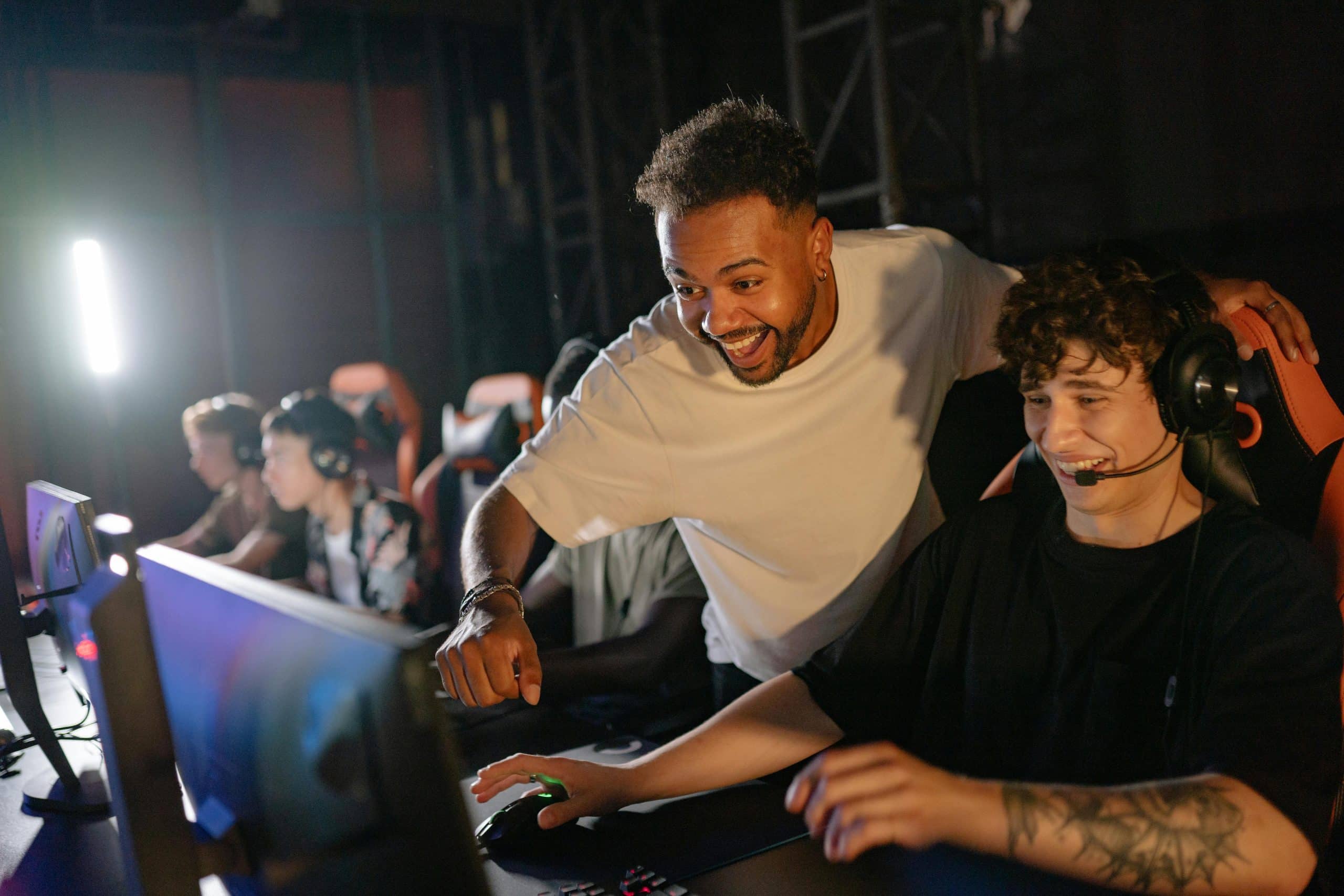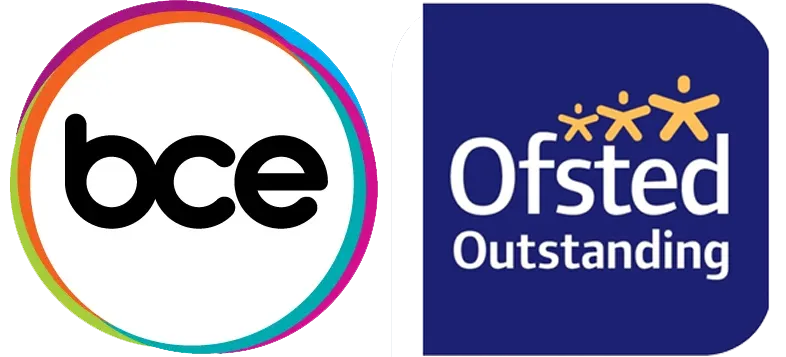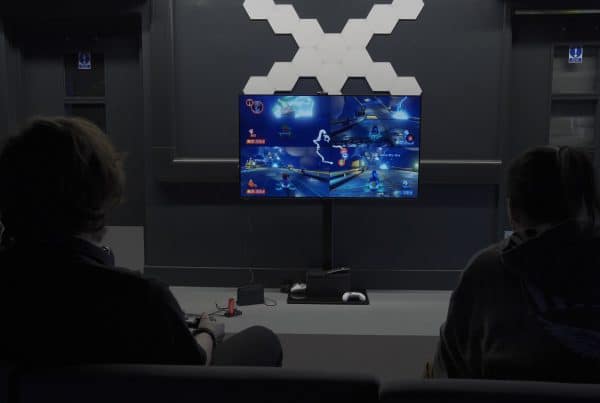
Esports is one of the fastest-growing industries in the world, with millions of fans, players, and professionals involved across various competitive gaming titles. As competitive gaming continues to expand, the role of an esports coach has become more important than ever. Coaches are essential for nurturing talent, developing strategies, and driving teams to success. Whether you’re an aspiring coach, a competitive player looking to transition into coaching, or someone wanting to enhance your leadership skills, this guide will provide valuable insights into becoming a successful esports coach.
What Does an Esports Coach Do?
An esports coach plays a critical role in the development of players and the overall success of an esports team. While it may seem similar to traditional sports coaching, esports coaching comes with its own unique set of challenges, as it requires a deep understanding of digital gameplay, strategy, and team dynamics.
Key Responsibilities
- Training players: A coach is responsible for developing training schedules, overseeing practice sessions, and ensuring players are constantly improving.
- Strategy development: A key part of an esports coach’s role is formulating strategies based on the team’s strengths and the competition’s weaknesses.
- Analysing gameplay: Coaches spend considerable time reviewing match footage, studying opponents, and identifying areas where the team can improve.
- Team management: Esports coaches manage team dynamics, monitor player performance, and make decisions about substitutions and roster changes.
Individual vs. Team Coaching
While many esports coaches focus on team coaching, individual coaching is also crucial. Coaches may work one-on-one with players to refine specific skills, enhance decision-making, and address personal weaknesses. Team coaching involves managing the collective efforts of the squad, ensuring smooth communication, and developing cohesive strategies that leverage the strengths of each player.
Essential Skills and Qualifications for an Esports Coach
The best esports coaches possess a mix of technical expertise, leadership qualities, and a deep understanding of player development. Here are some of the key skills and qualifications that make an effective esports coach.
1. Game Knowledge and Strategy Development
At the core of any successful coach is in-depth knowledge of the game. Whether it’s League of Legends, Dota 2, Counter-Strike, or any other competitive title, coaches need to be experts in the games they’re coaching. This includes understanding:
- In-game mechanics: Knowing the intricacies of characters, abilities, maps, and objectives.
- Player roles: Understanding the different player roles and how each contributes to the team.
- Strategic game planning: Creating strategies based on the current meta and adapting them to counter opponents’ playstyles.
A coach should also stay up to date with game updates, patches, and professional gameplay trends to keep their strategies relevant and competitive.
2. Leadership and Communication Skills
An effective esports coach must be an excellent leader and communicator. Players look to their coach not only for tactical guidance but also for motivation and morale. Leadership involves:
- Building trust: Creating a positive, trust-based environment where players feel confident in their coach’s expertise and guidance.
- Motivating players: Encouraging players, especially during tough times, and keeping them focused on team goals.
- Managing conflicts: As with any team, conflicts can arise. Coaches need to handle interpersonal issues, resolve disputes, and maintain a harmonious team environment.
Clear and open communication is essential for developing strong relationships with players and ensuring that everyone understands the team’s objectives and tactics.
3. Player Development and Performance Analysis
A coach’s ability to analyse player performance and provide constructive feedback is key to player growth. This includes:
- Data-driven insights: Using data to track individual and team performance over time, identifying patterns, and making adjustments to improve.
- Mindset training: Helping players manage stress, maintain focus, and develop mental resilience, especially in high-pressure situations.
- Feedback and improvement plans: Providing specific feedback for improvement, breaking down players’ performances, and setting clear goals for progression.
Coaches should have the ability to identify areas of improvement and create personalised development plans for each player.
4. Team Management and Organisation
Managing a team goes beyond just strategy. Coaches must be organised, ensuring that practice schedules are followed, players are engaged, and the overall team dynamic is healthy. This involves:
- Structuring practice schedules: Creating well-organised practice sessions that focus on specific areas of the game.
- Managing player rosters and substitutions: Deciding on the optimal team lineup for each match and making adjustments when necessary.
- Building a team culture: Fostering an environment where players collaborate, support one another, and work towards a common goal. A positive culture is essential for long-term success.
Good organisation and management are essential for creating a productive environment where players can thrive.
How to Get Started as an Esports Coach
Becoming an esports coach doesn’t happen overnight, but there are clear steps you can take to start your career in coaching.
1. Gain Experience as a Player
Many successful esports coaches transition from being competitive players. As a player, you can develop a deep understanding of the game mechanics, strategies, and team dynamics. This experience will be invaluable when you step into a coaching role.
2. Start with Casual Coaching
You don’t need to land a job with a professional team right away. Start by coaching in online communities, grassroots teams, or local tournaments. Offer feedback and advice to help players improve. This will build your reputation and help you gain experience working with a variety of players.
3. Get Certified
While there’s no official certification for esports coaches just yet, taking courses or earning credentials in related areas (e.g., coaching, psychology, leadership, or sports management) can provide an edge. Many coaching programmes focus on developing leadership, communication, and strategic skills, all of which are essential for coaching esports.
Career Opportunities in Esports Coaching
As the esports industry grows, the demand for coaches also increases. Here are some of the career pathways within esports coaching:
- Team Coach: Works with a professional esports team, developing strategies and improving team performance.
- Performance Coach: Specialises in improving individual player performance, often focusing on mindset, resilience, and stress management.
- Analyst: Assesses gameplay footage, provides data-driven insights, and assists with strategy development.
- Content Creator: Coaches can also create educational content to build their brand, attract sponsorships, or educate other players.
Salary expectations in esports coaching vary depending on the level of competition (local, regional, or international) and the size of the organisation. Coaches at professional esports organisations can earn a solid income, while freelance coaches may earn based on individual clients or team contracts.
How BCE’s Esports Courses Prepare You for Coaching Success
BCE’s Esports courses are designed to provide students with the skills, knowledge, and industry exposure they need to succeed in esports coaching. The courses cover a wide range of topics, from game mechanics and strategy development to player psychology and performance analysis. Students also gain hands-on experience in coaching, working with real teams, and participating in esports tournaments and industry projects.
By the end of BCE’s Esports courses, students will have:
- Practical coaching skills in game strategy, leadership, and player development.
- Experience in managing teams and understanding the dynamics of esports competitions.
- Industry exposure through internships and real-world applications.
Final Thoughts & Next Steps
Esports coaching is a rewarding career that offers a unique blend of technical expertise, leadership, and player development. To become a successful coach, you need to master game strategy, develop strong communication skills, and know how to manage both players and teams.
If you’re serious about becoming an esports coach, explore BCE’s Esports courses today to gain the essential skills and experience necessary for success in the esports industry.




